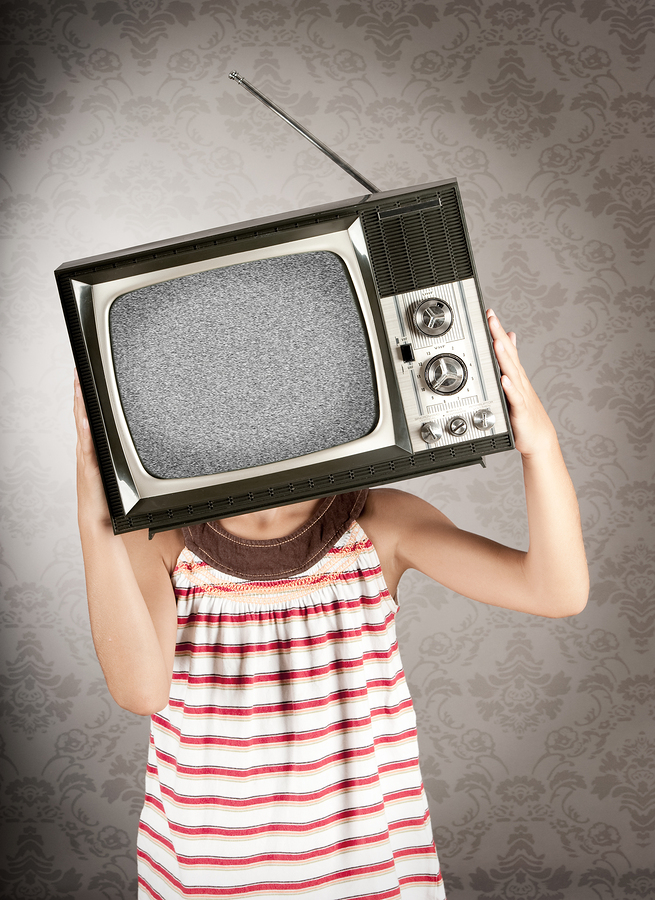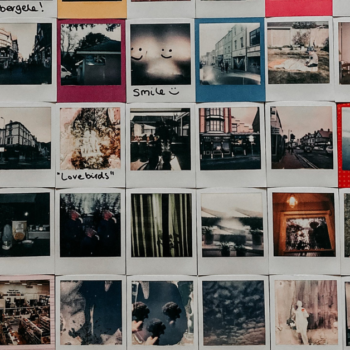The Media Overload Detox Diet
/ Coping with Grief : Litsa Williams
This has been a devastating week for our country. Between the deaths and injuries in Boston and Texas, we are reminded again how precious and fragile life is. As we all struggle, many of us are left wondering what impact these tragedies are having on our children. How can we help them? What is the best way to talk to them? Will they be impacted long-term? Luckily articles have been surfacing around the web on helping children with these unimaginable tragedies and we are so grateful to the many outstanding children’s organizations providing these resources. As I have read each article there is one common recommendation that is emphasized early and often – limiting media exposure. The reasons are numerous. Little guys often don’t grasp the concept of things being replayed, so they may assume the violence continues. When they hear information from media it is harder to gauge what they heard and understood. Ideally they will hear the information from you, so you can insure what they hear is appropriate and that they understand it with all the necessary context.
What these articles don’t warn us about is the impact of the media coverage on us. Us?? Yes! Us! The grown-ups! This constant exposure is not without consequence, but we are often so busy worrying about the event itself or how our kids are handling the information, that we fail to assess how we are being affected. Let’s take the last few days for me. The 24 hour coverage was on at work and it was on at home. The internet was plastered with its own images. The radio was more of the same. Heck, when you get your email and the internet to your phone the media is with you everywhere you go! I felt overwhelmed, yet I kept watching and I kept reading. I had this sudden memory of the DC sniper tragedy. I was living overseas when it happened, but I couldn’t stop watching and reading and watching and reading. I was in media overload. It was not good for me then and this was not good for me now.
The weather was perfect and I decided I needed some space from the coverage. I decided to take the dog for a walk and before I was off the block I was sucked into a conversation with neighbors who were firing off questions: had I seen them surround the boat? had I seen the victims? didn't they look young and innocent? did I hear about the 14 people in Texas? The tragedy was everywhere. It felt inescapable.
"What’s the big deal?" you may be thinking, "It is just news coverage and people making conversation". If so you are probably one of those lucky people who has found a way to unplug or just isn’t feeling overwhelmed by the information and coverage. Good for you! You can stop reading here. Check back in Wednesday for our next post, because this one probably doesn't apply to you. For the rest of us, this constant exposure has real impact on our mood. We can feel it hanging over us. We find it impossible to escape.
Before we dive in to what we can do about this problem, let's talk real quick about why it is a problem. What's wrong with this overdose of media coverage? I know, it may seem obvious, but let's go through the issues just so we're all on the same page.
1) Secondary trauma. These images can be extremely graphic and emotional. We sometimes watch them for hours, which is more than enough time to be impacted, especially if we have a predisposition. These are often violent images that, especially on the internet, have limited editing and sometimes put us right in the midst of the violence. Secondary trauma is a very real phenomenon in which we can be removed from an event but still experience trauma from an overload of images, interviews, and other coverages.
2) It brings up our own stuff. The coverage of these events may bring up a similar traumas we have been through. It may remind us of the death of a parent, spouse, child or friend. It may remind us of a stressful situation we have been in - military service, car accidents, etc. Even when we have not been through a loss, it may get us thinking about the possibility of losing those who are close to us or being victims of violence.
3) They bring up other national traumas. With each new crisis, we are reminded of the stress and devastation of past crises. In the past days I have though of or heard mention of Newtown, 911, the Challenger, Virginia Tech, Waco, Columbine, and Oklahoma City. We are often not just processing this individual event, but also revisiting past tragedies.
4) We can’t get a break. These events can play 24 hours on multiple mediums. Everyone is talking about it. It is all over social medial. It can be tough to get any space from the intensity of the tragedy. Even when we try to get a break, it is often what everyone around us is talking about. And the media doesn’t want us to unplug – they are actively working to get us to keep the coverage on.
The above can be especially bad for people who have a history of trauma, anxiety, or depression. And though I haven’t seen any studies to back it up, I am pretty sure that grieving could be added to that list. Just because we are removed from the event in distance and time, the media keeps us deeply connected to it.
So what do you do about it? It would be easy to say, eh, just take a break. Turn off the TV, go outside, keep away from online news. But sometimes that quickly fails when you go outside only to be overwhelmed by neighbors talking about it. Or the lady working at the post office. Or the person in the check out line. Sometimes you need a plan.
So what can you do? There are some little ways to get a break that can help if you are the kind of person who needs some help disconnecting.
- Get your info in small doses. Turn on the news for 15 minutes - set a timer if you need to. Once your time is up turn the TV and get back to what you were doing.
- Set specific times of day to get updates. Once in the morning and once in the evening is usually sufficient. Do your best to spend the rest of your day focusing on other things and not getting sucked in to media coverage.
- Stick to your routine. If you have a daily schedule, try to stick to it. If you are skipping the gym, getting to work late, or putting off laundry this could be a sign you are becoming fixated. Stay on track with your schedule.
- Decompress. After spending time watching media coverage it is helpful to have a plan to refresh. When your 15 minutes of media is up, do something you enjoy away from the TV, radio, or computer.
- Go or a walk or a run
- Read a book (a light book, if possible)
- Create! Arts, crafts, photography, scrapbooking – whatever.
- Play with your kids (preferably away from all media devices, so you won’t be tempted to turn them on).
- Go to the gym (this can be a tricky one, if you gym is full of TVs. If this is the case, consider going to a class at the gym where you won’t be watching TV).
- Get a manicure/pedicure (make sure to tell them when they start that you don't want to talk about the tragedy).
- Be self-aware. Do some self-assessment about how the coverage is affecting you. Are you feeling especially tense, anxious, depressed, or simply struggling with existential questions like why bad things happen to good people. If so, consider a more defined plan for self-care.
- Talk to your therapist or counselor.
- Do an inventory of good things in life – things and places you love, inspiring things, and people you care about.
- If you are feeling physical stress, consider a massage, acupuncture, meditation or yoga. (read a little about meditation here).
- Do some journaling.
- Check out our self-care post for more ideas.
- Do something productive. Look in to things you can do to help he victims. Consider a charity you can make a donation to, send a care package, or organize a small fundraiser to raise money to send to the victims. There may be a tremendous amount already being done for the victims. If this is the case, consider helping those in need in your own community. Create care packages for a homeless shelter, volunteer for habitat for humanity, or seek another charitable organization to support.
- Tell others you need a break. When it is all everyone is talking about, it can be hard to ask other people to stop. For friends and family you are comfortable with, let them know you are feeling overwhelmed and need a break from discussing it. For those you don't feel comfortable saying that to, excuse yourself from conversations when you can. Trust me, everyone could probably use a break from talking about it, so others may welcome the space if you suggest it.
- Consider a full detox. If you are really in overload, a full break may be what you need. Think of it as a fast from all those toxins coming through your TV and computer screens. This is not denial or avoidance, it is simply a strategy to keep things in moderation. It can also be a way to prove to yourself that you can go for a full day or two with no media and live to talk about it.
Leave us a comment to let us know how the media coverage has impacted you and how you have been handling it. We love comments!
Like this post? Get more suggestions for coping with grief straight to your inbox - subscribe to get our new posts by email.
We wrote a book!
After writing online articles for What’s Your Grief
for over a decade, we finally wrote a tangible,
real-life book!
What’s Your Grief? Lists to Help you Through Any Loss is for people experiencing any type of loss. This book discusses some of the most common grief experiences and breaks down psychological concepts to help you understand your thoughts and emotions. It also shares useful coping tools, and helps the reader reflect on their unique relationship with grief and loss.
You can find What’s Your Grief? Lists to Help you Through Any Loss wherever you buy books:






Louis Dizon April 22, 2013 at 4:51 pm
I don’t really check out the news these days. It’s just filled with negative stuff that my brain doesn’t need. I’d rather watch History channel or Discovery.
Eleanor April 24, 2013 at 7:53 pm
Louis, I’m with you on the news. With news available 24 hours a day one can get a little inundated with negativity. Your wise to focus on the channels with programming that satisfies your brain!